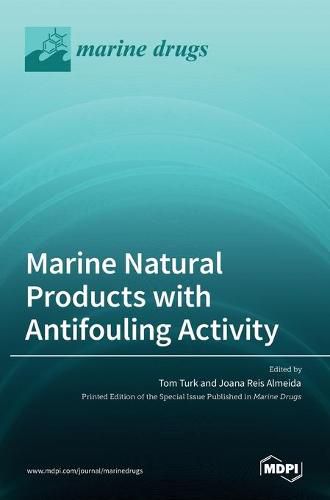Readings Newsletter
Become a Readings Member to make your shopping experience even easier.
Sign in or sign up for free!
You’re not far away from qualifying for FREE standard shipping within Australia
You’ve qualified for FREE standard shipping within Australia
The cart is loading…






This title is printed to order. This book may have been self-published. If so, we cannot guarantee the quality of the content. In the main most books will have gone through the editing process however some may not. We therefore suggest that you be aware of this before ordering this book. If in doubt check either the author or publisher’s details as we are unable to accept any returns unless they are faulty. Please contact us if you have any questions.
Marine fouling affects most man-made surfaces temporarily or permanently immersed in the sea, causing important economic costs. Intense research is aimed at methods for preventing or reducing fouling development. The most widespread solution to inhibit fouling is to make surfaces unsuitable for settlers by coating them with antifouling paints containing toxic compounds. Most such antifouling agents give undesirable effects on nontarget species, including commercially important ones. The search for new nontoxic antifouling technologies has become a necessity, particularly after the ban of organotin compounds such as tributyltin (TBT), once the most widespread and used antifouling agent. Alternative organic and metal-based biocides are now used in antifouling paints, but their possible toxic effects on the aquatic environment are not yet fully understood. A nontoxic alternative for antifouling protection comes from the possibility of adopting natural antifouling compounds that are and may be found in marine sessile invertebrates like sponges, bryozoans, corals, and tunicates and in marine microorganisms. Such metabolites can prevent their producers from being fouled on by other organisms or be responsible for specific metabolic functions that may interfere with biofouling species adhesion. As natural marine compounds, they may inhibit settlement through a nontoxic mechanism without adverse effects to the environment. Such compounds could be developed into active ingredients of new antifouling coatings. So far, a rather limited number of natural products antifoulants (NPAs) has been isolated from marine organisms, but a huge reservoir of compounds with potential antifouling activity is hidden in marine organisms. The Special Issue on Marine Natural Products with Antifouling Activity aims at the discovery of such compounds their activity, toxicity and potential application in environmentally friendly antifouling coatings.
$9.00 standard shipping within Australia
FREE standard shipping within Australia for orders over $100.00
Express & International shipping calculated at checkout
This title is printed to order. This book may have been self-published. If so, we cannot guarantee the quality of the content. In the main most books will have gone through the editing process however some may not. We therefore suggest that you be aware of this before ordering this book. If in doubt check either the author or publisher’s details as we are unable to accept any returns unless they are faulty. Please contact us if you have any questions.
Marine fouling affects most man-made surfaces temporarily or permanently immersed in the sea, causing important economic costs. Intense research is aimed at methods for preventing or reducing fouling development. The most widespread solution to inhibit fouling is to make surfaces unsuitable for settlers by coating them with antifouling paints containing toxic compounds. Most such antifouling agents give undesirable effects on nontarget species, including commercially important ones. The search for new nontoxic antifouling technologies has become a necessity, particularly after the ban of organotin compounds such as tributyltin (TBT), once the most widespread and used antifouling agent. Alternative organic and metal-based biocides are now used in antifouling paints, but their possible toxic effects on the aquatic environment are not yet fully understood. A nontoxic alternative for antifouling protection comes from the possibility of adopting natural antifouling compounds that are and may be found in marine sessile invertebrates like sponges, bryozoans, corals, and tunicates and in marine microorganisms. Such metabolites can prevent their producers from being fouled on by other organisms or be responsible for specific metabolic functions that may interfere with biofouling species adhesion. As natural marine compounds, they may inhibit settlement through a nontoxic mechanism without adverse effects to the environment. Such compounds could be developed into active ingredients of new antifouling coatings. So far, a rather limited number of natural products antifoulants (NPAs) has been isolated from marine organisms, but a huge reservoir of compounds with potential antifouling activity is hidden in marine organisms. The Special Issue on Marine Natural Products with Antifouling Activity aims at the discovery of such compounds their activity, toxicity and potential application in environmentally friendly antifouling coatings.